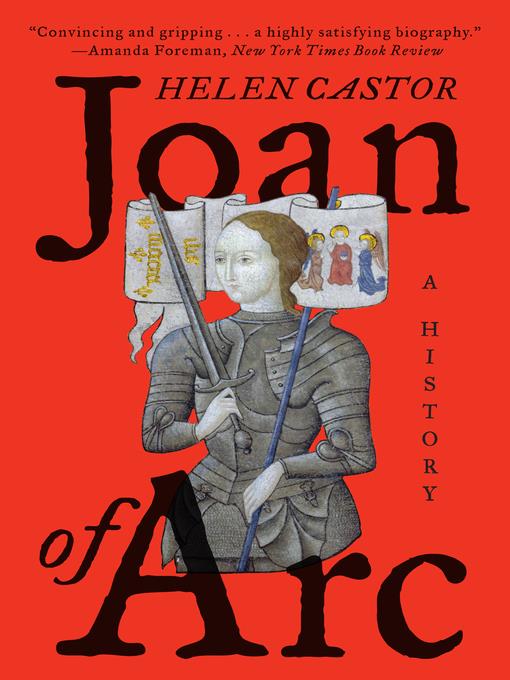
Joan of Arc
A History
کتاب های مرتبط
- اطلاعات
- نقد و بررسی
- دیدگاه کاربران
نقد و بررسی

March 2, 2015
Now a legendary symbol of France, Joan of Arc began her life as a 15th-century peasant girl who, after hearing the voice of God, donned “armour as though she were a man” and inspired the army of the dauphin Charles to victory over the English before leading him to his coronation at Reims as Charles VII. Castor (She-Wolves) recreates the heady atmosphere of a period when rival French, English, and English-Burgundian claims resulted in two claimants to the French throne. Her detailed, lengthy, and well-written account relates the fighting between primary dynastic houses before Joan arrives on the scene. Joan remains enigmatic throughout much of Castor’s work, but as she faces death at the hands of her English-Burgundian captors, her extraordinary will shines through. Castor increasingly uses Joan’s words during her trial, and quotes from the testimony of her friends and family members in the posthumous re-examination of her cleric-orchestrated trial. Surprisingly, Castor doesn’t mention post-WWI French nationalism and the desire of competing factions to appropriate Joan’s story in the brief discussion of Joan’s canonization in 1920. Castor creates a strong introduction to the courageous girl who swore she heard saints’ voices, but also to the nation-rending struggle for power so fiercely waged that only that singular, obsessive teenager could finally save France. Illus.

April 1, 2015
The title of this work explains what we need to know. This is not a biography, nor a religious parable or a folktale recast. Castor (She-Wolves: The Women Who Ruled England Before Elizabeth) has thoroughly rooted the story of the Maid of Orleans in its social, dynastic, and military context. Joan herself does not appear until a third of the way through the book; Castor begins nearly 30 years earlier and proceeds to paint a detailed picture of French politics and--with the help of several family trees--the elaborate crosscurrents of the French and English empires during the Hundred Years' War. By the time Joan enters the story, the reader understands the forces in play that allowed an illiterate peasant girl to gain an audience with the deposed heir to France's throne and lead an army to multiple victories before her capture, trial, and execution for heresy (and cross-dressing)--as well as the reasons for the "nullification trial" 25 years afterward to rehabilitate her name. Castor's research is thorough and her account at times dense but always fascinating. VERDICT Readers interested in history, rather than folklore, will find this detailed framing of Joan's story very rewarding. [See Prepub Alert, 11/17/14.]--Lisa Peet, Library Journal
Copyright 2015 Library Journal, LLC Used with permission.

























دیدگاه کاربران